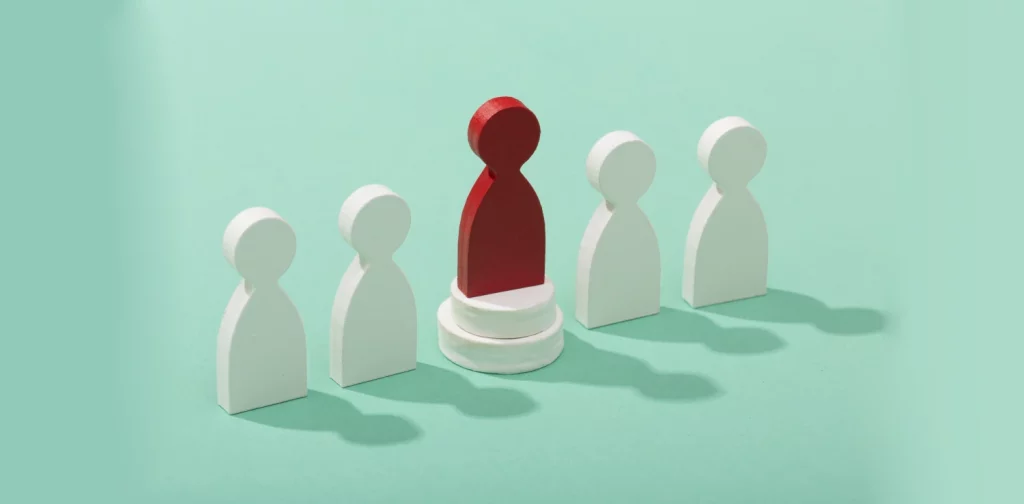What Is Inequality of Opportunity?

Photo: Freepik.
Throughout the course of our lives, we might dream of many things. Getting into a good school, having a high-paying job, settling in somewhere nice. However, circumstances beyond our control might get in the way, such as poverty, limited access to quality education, and lack of affordable healthcare systems. This illustrates how inequality of opportunity remains a persisting issue globally.
How the World is Divided
The world is unequal. The most glaring one is the economic disparity, with 700 million people living below the extreme poverty line of $2.15 per day. Meanwhile, 10% of the world’s wealth is owned by only 10% of its population.
At the same time, we all have heard the narrative that hard work determines success and wealth. However, attributing success to hard work alone risks overlooking other vital aspects. Access to quality education, healthcare, and nutritious food from birth to adulthood can also significantly boost people’s chances of thriving in life. Unfortunately, a huge portion of the global population is still deprived of these.
For instance, 30% of the total 250 million children worldwide who are not in school come from poverty-stricken Sub-Saharan Africa; research published in 2018 states that 8 million people die annually in low- and middle-income countries due to poor healthcare quality. In summary, the inability to access even the most basic necessities to survive can close the window of opportunities for those who want to improve their life quality and economic mobility.
The Inequality of Opportunity
In a report on inequality in the Asia-Pacific, the UNESCAP defines the inequality of opportunity as “the gaps in access to opportunities that depend on circumstances beyond a person’s control.” The circumstances range from places of birth and parents’ education to lack of access to decent work, education, and sanitation.
While hard work can indeed get people further in life, inequality of opportunity indicates that not everyone starts from the same line. Several aspects outside our control count as determining factors that decide people’s opportunities in life.
So, why does it matter? Because inequality of opportunity can hinder people from achieving a better life. It can also disrupt economic growth and sustainable development progress at the national and global scale. World Bank Senior Advisor Francisco Ferreira said, “If many potential scientists, engineers, and artists cannot access a decent education or basic healthcare early on because of the circumstances of their birth, that ultimately creates a cost for everyone in terms of wasted human and economic potential.”
Addressing the Issue
Reducing inequality is essential for sustainable development. Specifically, Target 10.3 calls for ensuring equal opportunity and reducing inequalities of outcome, including eliminating discriminatory laws, policies, and practices and promoting appropriate legislation, policies, and action. Ultimately, we cannot achieve sustainable development if we hinder people from having a better life.
Therefore, addressing inequality of opportunity is crucial. Governments, policymakers, researchers, and organizations must work together to bridge the data gap and implement systemic intervention in vital areas such as education, healthcare, and work. Reducing inequality at all levels of society is how we can truly achieve a better world where no one is left behind.
Editor: Nazalea Kusuma

Co-create positive impact for people and the planet.
Amidst today’s increasingly complex global challenges, equipping yourself, team, and communities with interdisciplinary and cross-sectoral insights on sustainability-related issues and sustainable development is no longer optional — it is a strategic necessity to stay ahead and stay relevant.

Kresentia Madina
Madina is the Assistant Manager of Stakeholder Engagement at Green Network Asia. She holds a bachelor’s degree in English Studies from Universitas Indonesia. As part of the GNA In-House Team, she supports the organization's multi-stakeholder engagement across international organizations, governments, businesses, civil society, and grassroots communities through digital publications, events, capacity building, and research.


 Call for Governance: Grassroots Initiatives Look to Scale Efforts to Conserve Depleting Groundwater
Call for Governance: Grassroots Initiatives Look to Scale Efforts to Conserve Depleting Groundwater  Integrating Environment, Climate Change, and Sustainability Issues into Education Systems
Integrating Environment, Climate Change, and Sustainability Issues into Education Systems  Finally Enforced: Understanding the UN High Seas Treaty
Finally Enforced: Understanding the UN High Seas Treaty  Risks and Opportunities of Submarine Communication Cables for Sustainable Development
Risks and Opportunities of Submarine Communication Cables for Sustainable Development  Rising Attacks and Violence Against Land and Environmental Defenders
Rising Attacks and Violence Against Land and Environmental Defenders  Unveiling Potential Technological Risks amid Global Crises
Unveiling Potential Technological Risks amid Global Crises